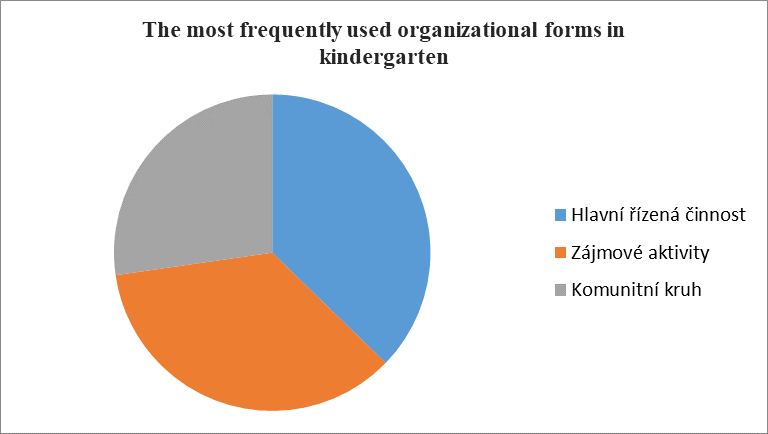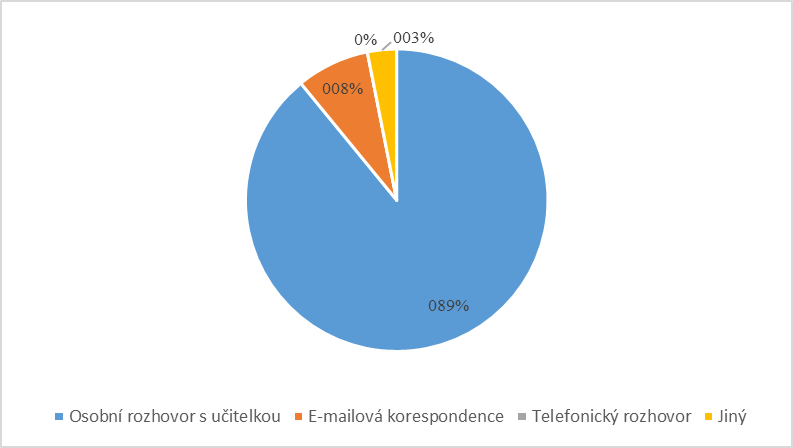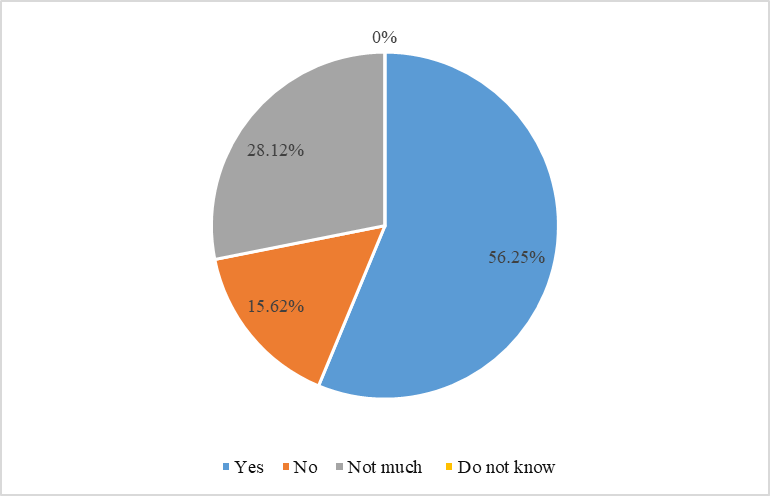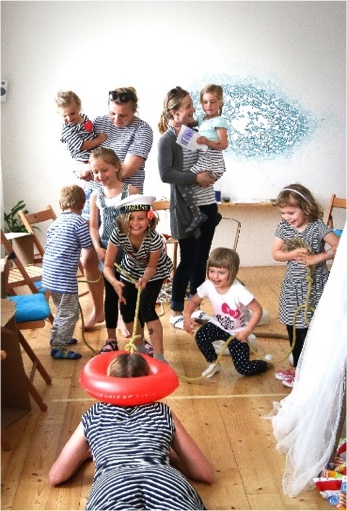Abstract
The research study surveys if there are over-organized educational programmes in kindergartens, which could hinder free play of children and communication of teachers with parents during every day education. The research aim is to find out persisting organizational forms, communication and educational methods for kindergarten children and to reveal causes which impede the creation of suitable conditions in preschool education for greater use of free game creation of children and its appreciation both by teachers and parents. The research was based on a quantitative comparative survey where a structured questionnaire for teachers and parents of children in kindergartens was created. Obtained figures and data from the measurement have been processed by descriptive methods and correlations and compared in both groups of respondents
Keywords: Gameschildrenpreschool educationpedagogueresearch
Introduction
Nowadays there is great pressure on people´s performance in society being measured according to standardised codes which is endangering free play in kindergartens. Its importance in pre-school education is not appreciated sufficiently enough, despite the fact that there is a lot information available which is underscores the significant importance of a child´s play at pre-school age. We can ask why it is so; Is it due to the hectic times we live in? Is it due the current lifestyle with the emphasis on acceleration? Is it due to the pressure on standardised educational outcomes? The famous educator, John Amos Comenius, pointed out, that children´s play/game is “a splendid preparation to serious issues which is true even today. When we ask other questions: Do children have enough time to play as they like in kindergartens? Are there sufficient conditions created for free spontaneous play? According to experience and current findings, it is indeed necessary to support more individual spontaneous children´s play in kindergartens. This is because there are still kindergartens, where children have no time to play as freely as they like. This is due to the lack of appreciation of children´s play in pre-school education.
Pre-school teachers as play masters
A kindergarten teacher needs to become a play master; s/he grasps the play and its nature, able to manage roles in a playful education and uses play as a pedagogical method. This mastery of preschool education should be attained by the teacher in his/her own professional way.
Pre-school educators as play masters are able to create the right climate for play/games, so that voluntariness, freedom and spontaneity of children would not disappear. S/he is the only one as a professional in pre-school education who is able to uplift play to its peak of pedagogical mastery, with comprehensive knowledge of pre-school aged children
Free play needs the teachers’ respect and incentives to create the necessary conditions. A preschool teacher should consider educational outcomes throughout the day in kindergarten where children’s play becomes the most important activity. The play should be supported without specific guidance and directives. When children’s play arises spontaneously, it can just be gently enhanced by the teacher who can stimulate the children and lead them to further activities themselves while playing. A preschool educator should be able to support the play with great empathy, respect for the child and the play itself. S/he can advise when the child asks for him/her for help, which does not mean to provide the solution immediately but to gently support the child´s way to its own individual findings, thinking and exploring.
Educational organization outline of a play in pre-primary school
Specialists in preschool education ask such questions as: How can kindergarten play appreciation be fully supported? Where will we find inspiration, so that Comenicus’ motto can be applied in pre-primary schools and in families? What actually is the reason for the mistrust in children’s play in kindergartens? Why are we apprehensive about the fact that children will “only play”? Where has the professionalism of the preschool educator gone, when subjected to parental pressure on behalf of standardized activities to the exclusion of free play? What do parents need to appreciate the children’s free play instead of organised activities?
A preschool educator might have many questions, while thinking about the organization of the day’s schedule in kindergartens and the educational activities to offer. In favour of children’s play, s/he should balance the ratio between controlled and individual - spontaneous activities. From an organizational point of view, the teacher can positively influence the flexibility and variability of the organization of activities in kindergarten. Some examples can be offered to concretize the adjustments in the organization of pre-school educational activities. For example, a game called “Sailors” can be applied in morning hours together with a morning snack and hygiene routine in terms of the thematically tuned unit, for example “what sailors caught in the sea and what they eat on the ship “. Such topics support children play authenticity, where some physical activities can be integrated such as “sailors warm up exercise” and so on.
Furthermore, any related subject matter and activity can be incorporated into this game, which would lead towards further play development. The teacher can endorse the play by supplying “a collection of old useless things“, with the notion that the sailors had found it while sailing (fishing nets, a helm, a typewriter, an alarm clock, a gramophone, a cassette recorder taking apart, fabric, hats, caps, ties, necklaces) which the children can use as they continue playing “sailors and stories about old things which they had found”. It is especially in preschool education to fully appreciate and endorse free play, which leads towards development of required competences, necessary for children´s development.
Here, the teacher´s personality requirements are very high. Teachers as play masters should be able to create suitable environments for the creation of games/play. According to Koťátková (2008) the environment in kindergartens is influenced by teachers’ personality, such as:
Willingness to communicate and not just only with children, but also with parents, during communication behave naturally, emphatically, and also to be able to act assertively.
Ability to have great fondness of children, this feature should be a matter of course, when someone choses to work with children as a job. Teacher should be a support to children, take an interest in them, observe them what they say to her/him, help them in difficult situations, work with zest and energy, contrive to motivate and appreciate children.
Ability and willingness to cooperate with children and parents; this ability is important also for good relationships at work.
Ability for pedagogical reflection, and also self-reflection; that means to assess one’s own work, acknowledge mistakes and learn from them.
The classroom environment and the whole school atmosphere are a result of relationships and cooperation of all school workers, who create the right climate, and at the same time, it influences their work, performance and communication.
Problem Statement
It is a shame, that there are still some kindergartens which persist in the old tracks in terms of organization and offer of controlled activities for children, while being afraid to change the strategy and communication with parents, apparently for fear, parents would lose interest in their kindergarten. In terms of communication with parents, the teachers are not persuasive and open, so that they could supress the free play of children in favour of leisure and club activities. Direct and open communication with parents is expected in kindergartens.
From the ideas and raised issues, this paper attempts to identify the gaps and pitfalls to support and appreciate children’s free play in kindergartens and among parents.
Research Questions
This research attempts to uncover the answers to the following questions:
How are conditions created for free play in kindergartens?
How do parents communicate with a kindergarten and what forms of communication do they prefer?
Purpose of Study
This research project was undertaken to find out if sufficient attention was being given to free spontaneous games of children or whether teachers’ controlled activities with children still persist.
Furthermore, it focused on discovering the causes which prevent from a greater appreciation of free games in kindergartens and warns about options of effective communication with parents. The goals of the research were to reveal the causes which prevent the creation of suitable conditions for free play in kindergartens and identify the most suitable possibilities of communication between parents and the school.
Research Methods
Instruments
Structured questionnaires were used as a research method to collect the data for the research; a questionnaire for teachers (A) and for parents of children in kindergartens (B). Both were based on the problem fields which were being examined. Questionnaire A consisted of 18 items with 15 closed 3 open. Questionnaire B consisted of 16 questions with 15 closed and only one open. Both questionnaires were sent to respondents in a printed and an electronic versions.
Research sample
The research sample consisted of two groups of respondents A and B. Group A was represented by kindergarten teachers totalling 135 teachers in the Czech Republic. 112 questionnaires were returned. Group B consisted of parents whose children were attending kindergarten currently. Altogether, 77 respondents returned the questionnaires. Obtained figures from the survey were processed by descriptive methods and compared in both groups of respondents – teachers and parents.
Findings
To find out whether children had enough time or space to play in kindergarten, the teachers were asked what organizational form they used the most. Figure

The most frequent organizational underestimated forms used was the controlled activity. Another favourite organizational form is represented by hobbies/leisure activities. And, last but not least, the community circle is used quite a lot, and could be used within all above mentioned organizational forms. Nevertheless, the survey showed that there is not enough time for spontaneous free games of children in kindergartens.
Furthermore, this research was focused on identifying the most suitable possibilities of kindergarten communication with parents.

Figure
Another interesting finding was revealed in terms of how parents find out about current events in kindergarten.
From Table
At the same time, the need of a direct contact with a teacher (19.48%) or to obtain information by a direct contact was rated second in terms of importance, which signals its importance for frequent meetings with teachers and parents.
The attention of the research is the answer to the question whether the kindergarten organizes any events for parents with children who attend the school.

Figure
It is important to organize these events in order to develop closer relationships between a kindergarten and parents, but also among parents and children.
7. Conclusion
This study shows that kindergartens are a subject to social and competitive pressure of growing prestige. Furthermore, kindergartens are considered to be one of the determining criteria for the quality of pre-school education. The time has come to the point to discuss with parents more about dominant activities, which is represented by a play in pre-school education and to emphasize its significance at preschool age. It is necessary to explain that excessive organization of the children’s day in kindergarten is negative for children’s development. Hence, the research question of ‘How are conditions created for free play in kindergartens?’ can be answered that very little is done to create conditions for free play in kindergartens. The results show that controlled activities dominate the kindergarten day. If this is so, then free play with all its positive educational outcomes are truly endangered. Children’s development will be negatively affected by this. The research question of ‘How do parents communicate with a kindergarten and what forms of communication do they prefer?’ shows that parents do communicate with the kindergarten in traditional ways such as looking at the notice board but many have stated that face to face contact with the teacher is also important.
It is necessary to motive parents as well as engage them in the activities and games with their children in kindergarten, hence, allowing them to appreciate and reflect that playing is a useful and irreplaceable preparation for their children for life. The photo enclosed presents a successful meeting of children, parents and teachers in engaging the children in playful activities, which are implemented in some kindergartens and has received positive feedback in the development of a child-parent relationship.
Kindergartens thus gain a natural predilection, image, appreciation of pre-school education and support for professionalism of preschool educators.
All in all, a photo (Figure

Acknowledgments
This paper was supported by the Specific Research of the Faculty of Education of the University of Hradec Králové 2018, number 2105, entitled: Creativity of Preschool Pedagogues.
References
- Hornáčková, V. (2014). Hra je krásnou přípravou k vážným věcem. Hradec Králové: Gaudeamus.
- Koťátková, S. (2008). Dítě a mateřská škola. Praha: Grada.
- Mertin, V., Gillernová, I. et al. (2010). Psychologie pro učitelky mateřské školy. 2. rozš. vyd. Praha: Portál.
- Opravilová, E., Gebhartová, V. (2003). Rok v mateřské škole. Praha: Portál.
Copyright information

This work is licensed under a Creative Commons Attribution-NonCommercial-NoDerivatives 4.0 International License.
About this article
Publication Date
14 January 2019
Article Doi
eBook ISBN
978-1-80296-052-5
Publisher
Future Academy
Volume
53
Print ISBN (optional)
-
Edition Number
1st Edition
Pages
1-812
Subjects
Education, educational psychology, counselling psychology
Cite this article as:
Hornáčková, V. (2019). Challenges to Preschool Age Children´s Free Play. In Z. Bekirogullari, M. Y. Minas, & R. X. Thambusamy (Eds.), ICEEPSY 2018: Education and Educational Psychology, vol 53. European Proceedings of Social and Behavioural Sciences (pp. 645-652). Future Academy. https://doi.org/10.15405/epsbs.2019.01.62

